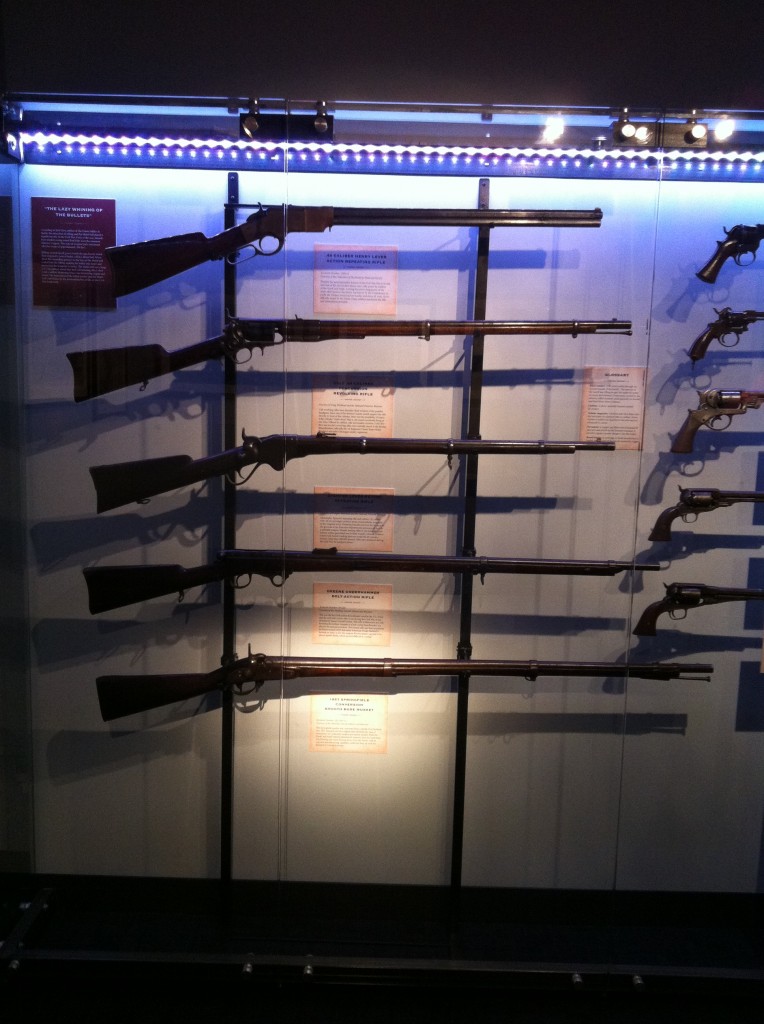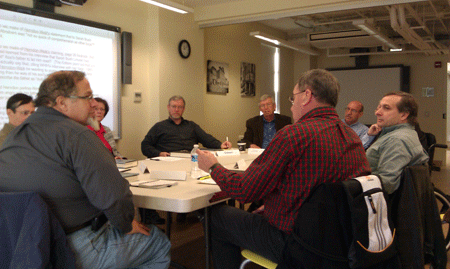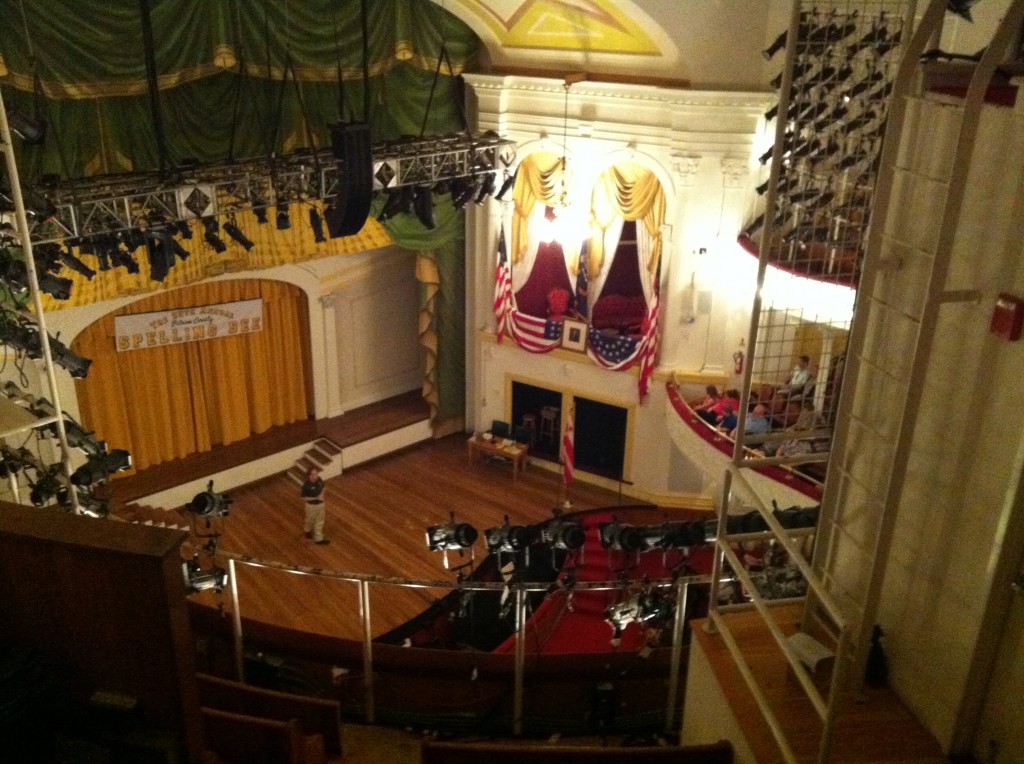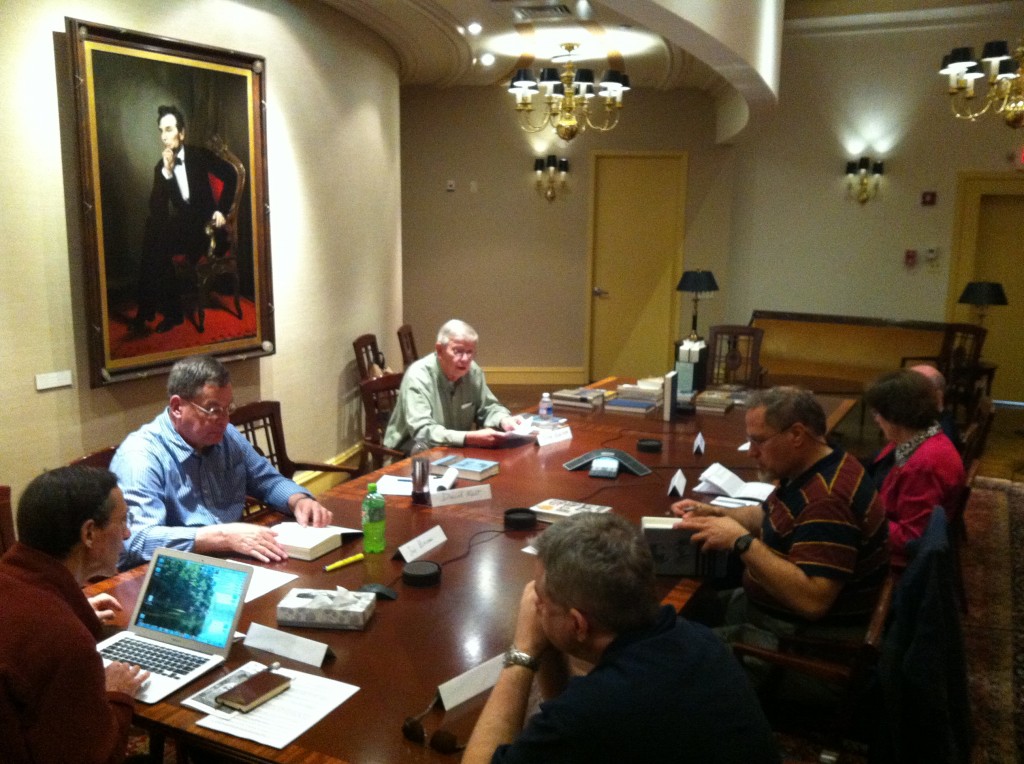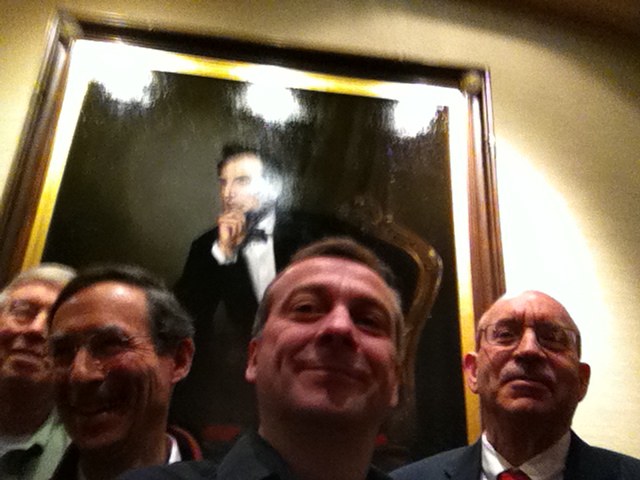 In less than two weeks I’ll be joining Jon Meacham and three other Lincoln scholars on the stage at Ford’s Theatre for the Abraham Lincoln Institute Symposium.
In less than two weeks I’ll be joining Jon Meacham and three other Lincoln scholars on the stage at Ford’s Theatre for the Abraham Lincoln Institute Symposium.
Ford’s Theatre is both a working theater and a national historic site. The box where Lincoln was assassinated is maintained in the condition that it was that night, and Lincoln scholars and the general public alike make pilgrimages to the site. There is also a museum on the lower floor. Standing on the stage gives somewhat of an existential feeling, as if you are transported back in time to that fateful night. For nearly a decade, Ford’s has also generously provided the theater space to the Abraham Lincoln Institute for its annual symposium, this year back live after a few COVID-induced virtual years. I am honored to have been selected as one of the five speakers for this year’s symposium, where I’ll talk about my book, Lincoln: The Fire of Genius, and in particular, how Lincoln helped modernize America.
The five renowned speakers are:
Terry Alford
In the Houses of Their Dead: The Lincolns, the Booths, and the Spirits
Fred L. Hord
Co-editor, Knowing Him by Heart: African Americans on Abraham Lincoln
David J. Kent
Lincoln: The Fire of Genius: How Abraham Lincoln’s Commitment to Science and Technology Helped Modernize America
Jon Meacham
And There Was Light: Abraham Lincoln and the American Struggle
Diana Schaub
His Greatest Speeches: How Lincoln Moved the Nation
All five of us will participate in a speaker panel after our individual talks, with renowned historian and incoming ALI President Edna Greene Medford serving as moderator. Each of us will also have time to sign your copies of our books, which will be available from the Ford’s bookstore.
Even better, the event is entirely free. Please go here to the Ford’s site to reserve your free tickets.
As I mentioned, Ford’s Theatre is not just a historic site, it’s a working theater putting on stellar performances. Since you’re already in town for the ALI Symposium, check out the new play opening just days before the event, the set of which will serve as the backdrop for the symposium. “SHOUT SISTER SHOUT” is Cheryl L. West’s “spirited, authentic and emotionally charged story about a charismatic music forerunner and the authentic roots of rock-and-roll.” It is not to be missed. Check out this link to obtain tickets.
If you’re in the Washington, DC area, or can get here on March 25th, plan to come to Ford’s Theatre for the ALI Symposium. Need more incentive? Peak cherry blossom bloom is predicted to be March 22-25th, perfect timing for a visit.
Hope to see you all there!
[Photo courtesy of Ford’s Theatre]

Lincoln: The Fire of Genius: How Abraham Lincoln’s Commitment to Science and Technology Helped Modernize America is available at booksellers nationwide.
Limited signed copies are available via this website. The book also listed on Goodreads, the database where I keep track of my reading. Click on the “Want to Read” button to put it on your reading list. Please leave a review on Goodreads and Amazon if you like the book.
You also follow my author page on Facebook.
David J. Kent is President of the Lincoln Group of DC and the author of Lincoln: The Fire of Genius: How Abraham Lincoln’s Commitment to Science and Technology Helped Modernize America and Lincoln: The Man Who Saved America.
His previous books include Tesla: The Wizard of Electricity and Edison: The Inventor of the Modern World and two specialty e-books: Nikola Tesla: Renewable Energy Ahead of Its Time and Abraham Lincoln and Nikola Tesla: Connected by Fate.



 The American Civil War was a crossroads between the old style of warfare and modern warfare. This modern warfare (if one can call the wholesale taking of lives “modern”) is explored in an exhibit in the Ford’s Theatre Center for Education and Leadership called “
The American Civil War was a crossroads between the old style of warfare and modern warfare. This modern warfare (if one can call the wholesale taking of lives “modern”) is explored in an exhibit in the Ford’s Theatre Center for Education and Leadership called “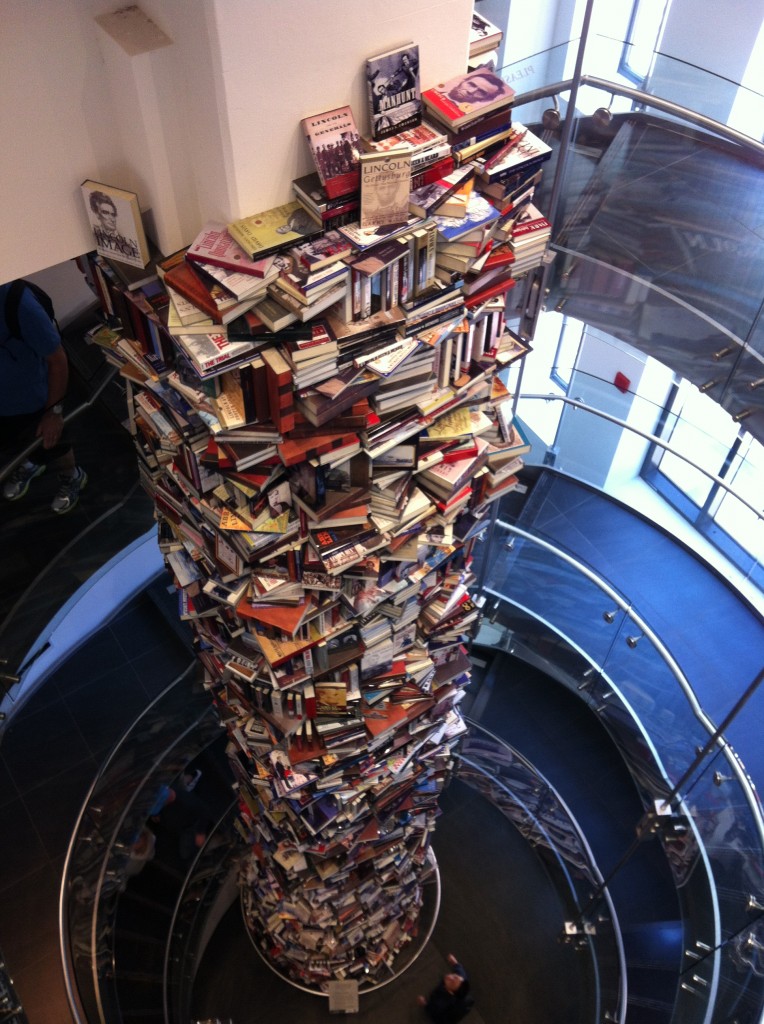
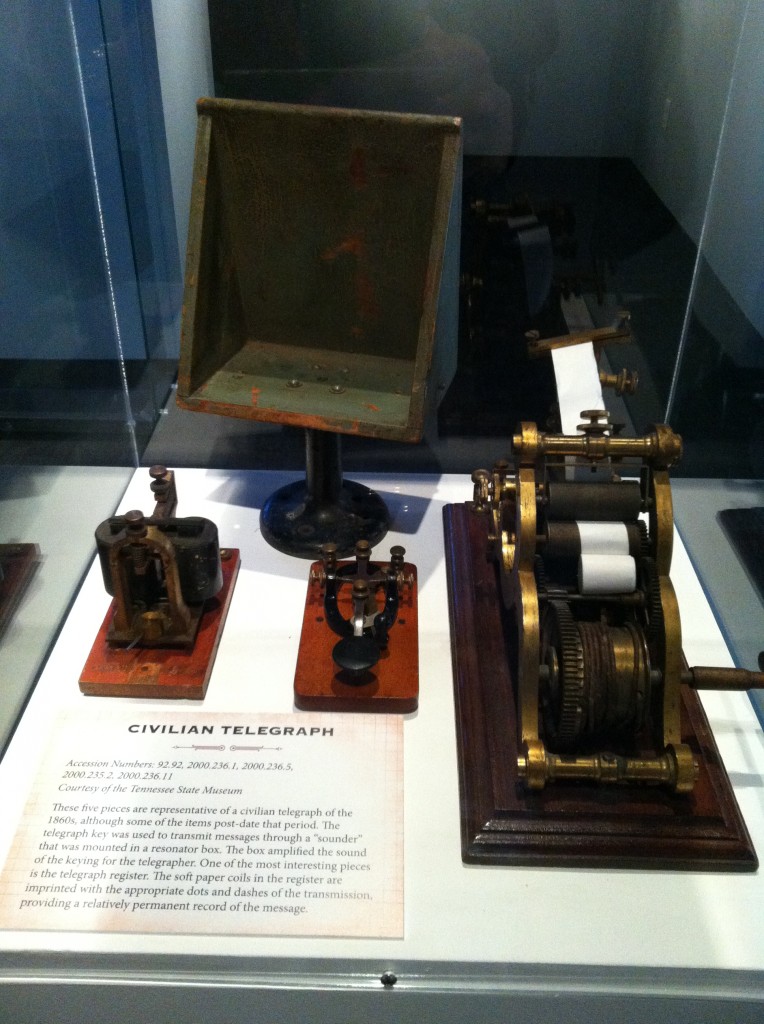
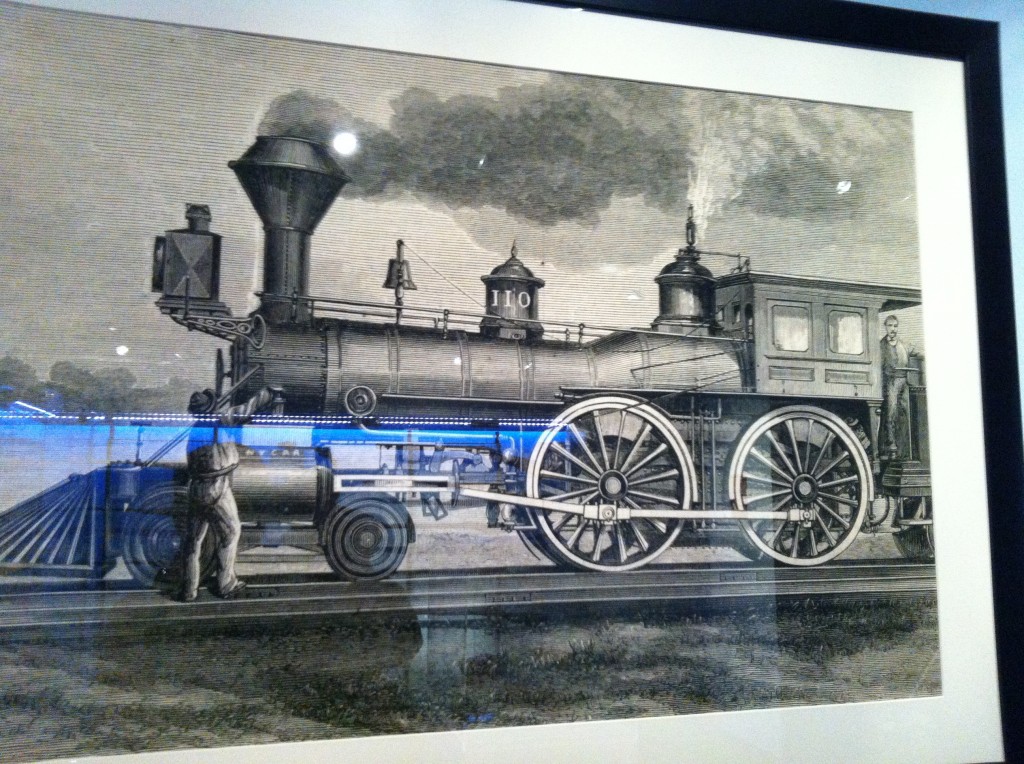 The advancements in railroads, manned balloons, and cannons moved warfare into the modern age. The evolution of basic weaponry – away from single-shot muskets and toward repeating rifles and pistols – increased both the distance and lethality of offense.
The advancements in railroads, manned balloons, and cannons moved warfare into the modern age. The evolution of basic weaponry – away from single-shot muskets and toward repeating rifles and pistols – increased both the distance and lethality of offense.